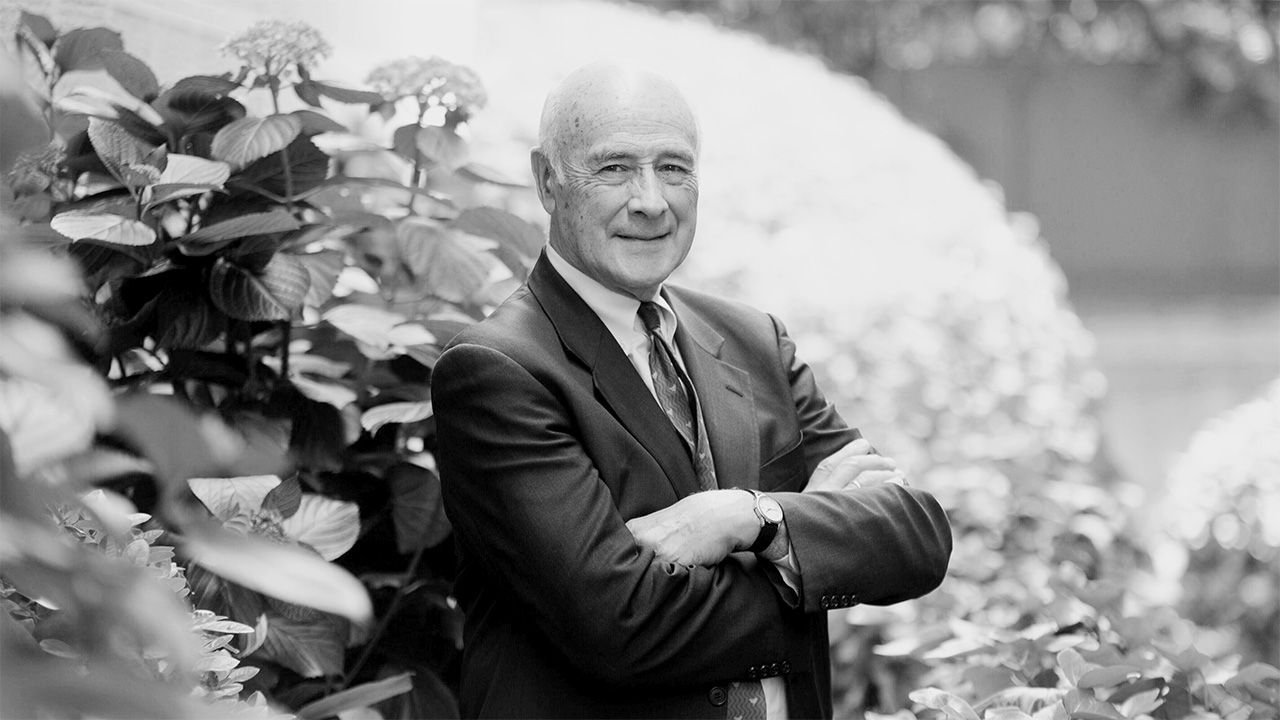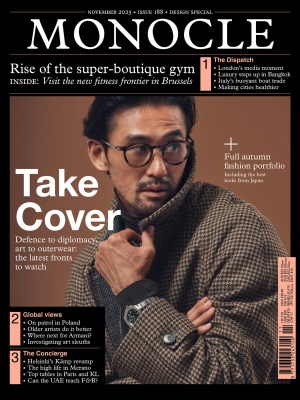The late Joseph S Nye on what “soft power” means in Trump’s new world
Nye, who coined the term “soft power”, has died at the age of 88. Here in full is his upcoming article from Monocle’s June issue.

Joseph S Nye, who popularised the term “soft power”, on what it means in an ever-hardening global landscape.
The death of Joseph S Nye, the professor who coined the phrase ‘soft power’, was announced on Wednesday. He was 88. Nye’s humility and expertise have been lauded in the hours since by many who knew him and many who did not. It makes perfect sense that the originator of a phrase whose meaning rests on the idea that peace and collaboration between nations are a good thing was a peaceful and collaborative man himself. Nye worked tirelessly for many decades in positions at the White House and Harvard University to promote his concept. At a time when hard power and coercion as means of statecraft are making a comeback, his compassion and intellectual rigour will be greatly missed by the world. Here is an article that Nye wrote two weeks ago. It will feature in Monocle’s June issue.
In a world marked by wars in Ukraine and Gaza – and the leadership of Trump, Putin and Xi – has soft power as a form of statecraft ceased to be effective or even desirable? Some 30 years ago, many believed that the age of hard power was diminishing and that the world was entering a new, softer era. Clearly that turned out to be wrong but it was never my view. I formulated the concept of soft power during the Cold War and argued that it could be relevant to conflict as well as peace. Soft power is the ability to affect others through attraction rather than coercion. Its consequences are often slow and indirect, and it is not the most important source of power for foreign policy – but to neglect it is a strategic and analytical mistake. The Roman Empire rested on its legions but also on the allure of Roman culture and citizenship. As a Norwegian analyst described it, the US presence in Western Europe after the Second World War was “an empire by invitation”. At the end of the Cold War, the Berlin Wall collapsed not under a barrage of artillery but from hammers wielded by people whose minds had been affected by Western soft power.

Smart political leaders have long understood the power that can come from values. If I can persuade you to want to do what I want you to do, then I do not have to force you to do what you do not want to do. If a country represents values that others find attractive, it can economise on sticks and carrots. Attraction can be used to increase hard power. Volodymyr Zelensky used his talents as an actor to attract sympathy from Western media and parliaments, which could be transformed into weapons to increase Ukraine’s hard power in its war with Russia.
A country’s soft power comes primarily from three sources: its culture, when it’s attractive to others; its political values, such as democracy and human rights, when it lives up to them; and its policies, when they are seen as legitimate. How a government behaves at home (for example, protecting a free press and the right to protest), in international institutions (consulting others and multilateralism) and in foreign policy (promoting development and human rights) can affect others by the influence of example.
Many soft-power resources originate in civil society. Hollywood movies that showcase the US’s diversity and personal liberty can attract others. So too does the charitable work of foundations and the freedom of inquiry at US universities. Firms, churches and protest movements develop soft power of their own, which might reinforce or be at odds with a country’s official foreign-policy goals.
As I describe in my memoir, A Life in the American Century, the US lost soft power during the Vietnam War. Yet within a decade, reforms passed by Congress, the honesty of Gerald Ford, the human rights policies of Jimmy Carter and the optimism of Ronald Reagan helped to restore American attractiveness. Even when crowds around the world protested US policies in Vietnam, they sang “We Shall Overcome”. An anthem from the civil rights movement illustrated that the US’s power to attract rested not on our government’s policies but on our civil society and capacity to be self-critical and reform.
Donald Trump clearly does not understand soft power and undercuts it by actions such as abolishing USAID, silencing the Voice of America, threatening allies and belittling climate change. China values soft power – and stands ready to fill the vacuum that Trump is creating.
Nye was professor emeritus at Harvard University and author of several books including ‘A Life in the American Century’.


